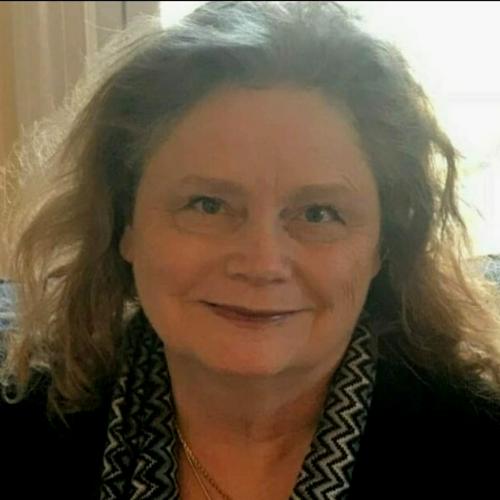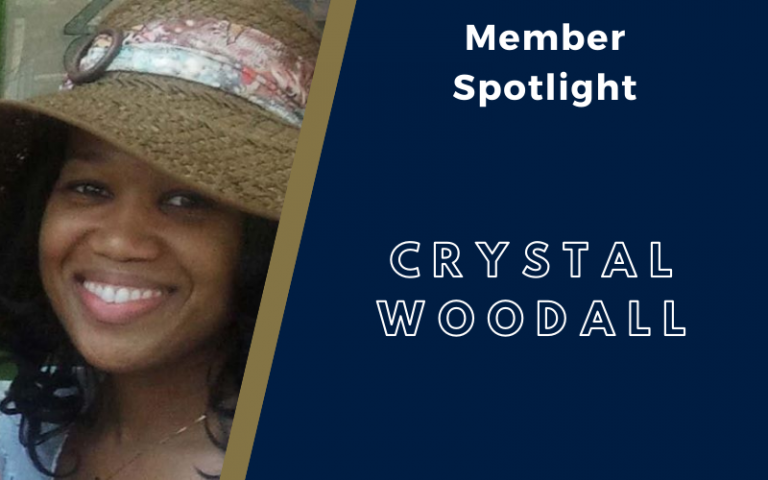Member Spotlight: Sharron Giambanco
What type of writing do you do? Are you traditionally published or indie/self- published?
I write poetry, which usually has a Christian theme or reference. I also am working on a fantasy novel set in Norman Sicily. I am still working on my projects, so I have not published anything yet.
What inspired you to begin writing?
I have wanted to write since I was a young girl. I have written a little throughout the years, but I didn’t keep any of the work. My friend, Joyce McConnell inspired me to write and encouraged me to pursue my dream of writing.
How often do you write?
I try to write a little every day. Sometimes, I get bogged down with research. Writing about Norman Sicily has been an education.
How do you find time to write?
That can be a challenge, because my husband and I own a pizzeria and that requires a lot of my time. My six children are adults now and that frees up a little time. Someone in a Facebook group wrote something that changed my perspective. “It depends upon how much you want it.” That made me stop and think. I decided to view my writing as my second job. If I don’t respect my dreams, why would anyone else? I hired a housekeeper to help me keep my house at least livable. I have simplified my life as much as I can. I have a little corner at the shop that I consider my office. Usually, I write from 9 a.m. to 11 a.m., before we open. I guard my writing time, ferociously.
Who are your favorite authors and why?
I have over one thousand books, just in my bedroom, it is not easy to play favorites. I love poetry. “She Walks In Beauty” by Byron is my favorite poem. Kipling, Yeats, Sir Thomas Wyatt, Shakespeare, Robert Burns, Auden, John Donne are the first poets who come to mind. G.K Chesterton, Catherine Marshall, C.S. Lewis, George MacDonald, Baroness Emmuska Orczy, Elizabeth Sherrill, Debbie Macomber, Georgette Heyer, Walter Farley, Margaret Mitchell, Taylor Caldwell, Dorothy Gilman, Mary Jo Putney, Louise May Alcott and any book concerning sixteenth century Europe or Medieval Sicily are among my favorites. I read a variety of authors. I read the “The Abolition of Man” by C.S. Lewis concurrently with Chesterton’s “Eugenics and Other Evils.” For some reason, the two together clarified some things for me in our current culture. George MacDonald’s fairy tales cannot be matched, and I also enjoyed his novels. Orczy wrote the “The Scarlet Pimpernel,” one of my all -time favorite books. I like adventure and happy endings. Taylor Caldwell never had happy endings, but “Tender Victory” describes so much of what is happening in our country now. She wrote the book more than fifty years ago. “Gone With The Wind,” the book, is quite different than the movie. I am not a fan of the movie, but I am a native of Northeast Georgia and the history is so much of my own family history. My great-great grandfather walked home to Georgia after being released from the Rock Island prison, just like a character in the novel. It tells the story of Reconstruction and what everyone endured after the War. “Jubilee,” by Margaret Walker should be required reading for everyone. It tells the story of a remarkable African American woman, who was born in slavery and her life after the War. In spite of all that she had suffered, she overcame evil with good. The novel is based upon the life of Margaret Walker’s grandmother. I read a book by Frank Yerby that I really liked. It was set in Norman Sicily. He has been forgotten by many, but he was the first African American to sell one million copies of a novel.
What are you reading now?
“Queen Margaret of Sicily” by Jaqueline Alito, and a Regency novel by Georgette Heyer. My Bible every morning and evening.
What do you find most challenging about writing?
Character development is the most challenging thing for me. I am overwhelmed right now as I try to develop characters in a place that has four different major languages and cultures. Sicilians spoke Greek until the eleventh century. Arabic, Norman French, Latin and to a lesser extent, Jewish-Arabic, languages were spoken. The Sicilian language developed during this time. The Normans were supported by the Latin Pope in order to reclaim Sicily from the Saracens and the Byzantine Christians. Also, there was a great deal of influence from North Africa. The characters are not all Normans and I want to be historically correct. I would change the setting, but it is my husband’s culture and my children’s heritage.
What is your writing dream?
I want to finish the book set in Norman Sicily, and I have ideas to make it part of a trilogy. I have several works that I have shelved, temporarily, in order to finish the Norman Sicily book(s). The unfinished works include one on the changes in the South and another is on the book of Esther. Maybe a book about the pizzeria, after we retire. I would like to self-publish a book of poetry.
What would you most like to share with other Christian writers?
God’s Word is the best resource that we have available to us. Shakespeare, as well as many other authors obtained a lot of material for their works from the Holy Bible. Remember the witches of Endor from Macbeth? Straight from I Samuel chapter 28.
I read at the Trinity Lutheran Church’s “Bible Marathon” here in Warrenton last month and I loved it. For the past three years, the church has invited Christians to gather and read the Bible from Genesis to Revelation. I just found out about it this year. My turn was in the Second Book of Kings. I read about Jehu and his chariot. The watchman sees this chariot driving fast and furious and said, “It must be Jehu.” He must have had a wild reputation. Can’t you just see it? It reminds me of Ben Hur.
Then, there was Rizpah, whose sons were hanged, along with others of Saul’s family, to satisfy the Gibeonites. She had been captured as the spoils of war, the daughter of an Amalekite king, taken as Saul’s concubine. She stayed by the bodies of all seven men for five months and kept the vultures from eating the flesh from the bones. When King David heard about her, he ordered the bodies taken down and buried. Abner, the cousin of Saul, was accused of sleeping with her after Saul’s death. She had a very tragic life.
Ephraim had a great tragedy, the men of Gath killed two of his sons in a raid. He had other sons, but he had a daughter named Sheerah, who built three cities. The family suffered loss, but they rose up and built again.
Twenty-three years ago, it took me seventy- seven websites to figure out why Samson was so obsessed with Philistine women. The short answer is that they were generally tall, blonde-haired and blue-eyed. The Philistines wore their hair long, so they didn’t think anything was unusual about Samson’s hair being so long. Fortunately, it is easier now to satisfy one’s curiosity on Google. He must have been a short skinny guy with long hair, and the Philistines couldn’t figure out how he could beat them up.
There are stories all around us and we only need a sanctified imagination.

Sharron Giambanco
Writer, Business Owner
Sharron Giambanco lives in Warrenton, Virginia, where she and her husband own and operate a pizzeria. Every spare moment, that she can find, is spent working on her Christian fantasy novel, which is set in Norman Sicily. Sharron also writes poetry, during the slow times at work, on her cellphone Google docs app. She and her husband have six children, one grandchild, two cats that neither one of them want, and a pug named Mr. Chuckles.



